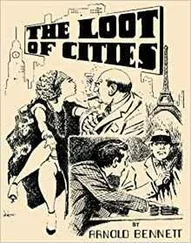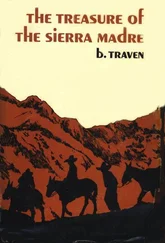Arnold Bennett - In the Capital of the Sahara
Здесь есть возможность читать онлайн «Arnold Bennett - In the Capital of the Sahara» весь текст электронной книги совершенно бесплатно (целиком полную версию без сокращений). В некоторых случаях можно слушать аудио, скачать через торрент в формате fb2 и присутствует краткое содержание. Год выпуска: 0101, Жанр: Классический детектив, на английском языке. Описание произведения, (предисловие) а так же отзывы посетителей доступны на портале библиотеки ЛибКат.
- Название:In the Capital of the Sahara
- Автор:
- Жанр:
- Год:0101
- ISBN:нет данных
- Рейтинг книги:5 / 5. Голосов: 1
-
Избранное:Добавить в избранное
- Отзывы:
-
Ваша оценка:
- 100
- 1
- 2
- 3
- 4
- 5
In the Capital of the Sahara: краткое содержание, описание и аннотация
Предлагаем к чтению аннотацию, описание, краткое содержание или предисловие (зависит от того, что написал сам автор книги «In the Capital of the Sahara»). Если вы не нашли необходимую информацию о книге — напишите в комментариях, мы постараемся отыскать её.
In the Capital of the Sahara — читать онлайн бесплатно полную книгу (весь текст) целиком
Ниже представлен текст книги, разбитый по страницам. Система сохранения места последней прочитанной страницы, позволяет с удобством читать онлайн бесплатно книгу «In the Capital of the Sahara», без необходимости каждый раз заново искать на чём Вы остановились. Поставьте закладку, и сможете в любой момент перейти на страницу, на которой закончили чтение.
Интервал:
Закладка:
In the Capital of the Sahara by ARNOLD BENNETT
I
MRS. MACALISTER turned with sudden eagerness and alarm towards Cecil Thorold — the crowd on the lawn in front of the railings was so dense that only heads could be moved — and she said excitedly —
"I'm sure I can see my ghost across there!"
She indicated with her agreeable snub nose the opposite side of the course.
"Your ghost?" Cecil questioned, puzzled for a moment by this extraordinary remark.
Then the Arab horsemen swept by in a cloud of dust and of thunder, and monopolised the attention of the lawn and the grand stand, and the élite of Biskra crammed thereon and therein. They had one more lap to accomplish for the Prix de la Ville.
Biskra is an oasis in the desert, and the capital of the Algerian Sahara. Two days' journey by train from Algiers, over the Djujura Ranges, it is the last outpost of the Algerian State Railways. It has a hundred and sixty thousand palm trees; but the first symptom of Biskra to be observed from the approaching first-class carriage is the chimney of the electric light plant. Besides the hundred and sixty thousand palm trees, it possesses half a dozen large hotels, five native villages, a fort, a huge barracks, a very ornamental town hall, shops for photographic materials, a whole street of dancing-girls, the finest winter climate in all Africa, and a gambling Casino. It is a unique thing in oases. It completely upsets the conventional idea of an oasis as a pool of water bordered with a few date-palms, and the limitless desert all round! Nevertheless, though Biskra as much resembles Paris as it resembles the conventional idea of an oasis, it is genuine enough, and the limitless desert is, in fact, all around. You may walk out into the desert — and meet a motor-car manœuvring in the sand; but the sand remains the sand, and the desert remains the desert, and the Sahara, more majestic than the sea itself, refuses to be cheapened by the pneumatic tyres of a Mercedes, or the blue rays of the electric light, or the feet of English, French, and Germans wandering in search of novelty — it persists in being august.
Once a year, in February, Biskra becomes really and excessively excited, and the occasion is its annual two-day race-meeting. Then the tribes and their chieftains and their horses and their camels arrive magically out of the four corners of the desert and fill the oasis. And the English, French, and Germans arrive from the Mediterranean coast, with their trunks and their civilisation, and crowd the hotels till beds in Biskra are precious beyond rubies. And under the tropical sun, East and West meet magnificently in the afternoon on the racecourse to the north of the European reserve. And the tribesmen, their scraggy steeds trailing superb horsecloths, are arranged in hundreds behind the motor-cars and landaus, with the pari-mutuel in full swing twenty yards away. And the dancing-girls, the renowned Ouled-Nails, covered with gold coins and with muslin in high, crude, violent purples, greens, vermilions, shriek and whinny on their benches just opposite the grand stand, where the Western women, arrayed in the toilettes of Worth, Doucet, and Redfern, quiz them through their glasses. And, fringing all, is a crowd of the adventurers and rascals of two continents, the dark and the light. And in the background the palms wave eternally in the breeze. And to the east the Aurès mountains, snow-capped, rise in hues of saffron and pale rose, like stage mountains, against the sapphire sky. And to the south a line of telegraph poles lessens and disappears over the verge into the inmost heart of the mysterious and unchangeable Sahara.
It was amid this singular scene that Mrs. Macalister made to Cecil Thorold her bizarre remark about a ghost.
"What ghost?" the millionaire repeated, when the horsemen had passed.
Then he remembered that on the famous night, now nearly a month ago, when the Hotel St. James at Algiers was literally sacked by an organised band of depredators, and valuables to the tune of forty thousand pounds disappeared, Mrs. Macalister had given the first alarm by crying out that there was a ghost in her room.
"Ah!" He smiled easily, condescendingly, to this pertinacious widow, who had been pursuing him, so fruitlessly, for four mortal weeks, from Algiers to Tunis, from Tunis back to Constantine, and from Constantine here to Biskra. "All Arabs look more or less alike, you know."
"But ——"
"Yes," he said again. "They all look alike, to us, like Chinamen."
Considering that he himself, from his own yacht, had witnessed the total loss in the Mediterranean of the vessel which contained the plunder and the fleeing band of thieves; considering that his own yacht had rescued the only three survivors of that shipwreck, and that these survivors had made a full confession, and had, only two days since, been duly sentenced by the criminal court at Algiers — he did not feel inclined to minister to Mrs. Macalister's feminine fancies.
"Did you ever see an Arab with a mole on his chin?" asked Mrs. Macalister.
"No, I never did."
"Well, my Arab had a mole on his chin, and that is why I am sure it was he that I saw a minute ago — over there. No, he's gone now!"
The competing horsemen appeared round the bend for the last time, the dancing-girls whinnied in their high treble, the crowd roared, and the Prix de la Ville was won and lost. It was the final race on the card, and in the mêlée which followed, Cecil became separated from his adorer. She was to depart on the morrow by the six a.m. train, "Urgent business," she said. She had given up the chase of the millionaire. "Perhaps she's out of funds, poor thing!" he reflected. "Anyhow, I hope I may never see her again." As a matter of fact he never did see her again. She passed out of his life as casually as she had come into it.
He strolled slowly towards the hotel through the perturbed crowd of Arabs, Europeans, carriages, camels, horses and motor-cars. The mounted tribesmen were in a state of intense excitement, and were continually burning powder in that mad fashion which seems to afford a peculiar joy to the Arab soul. From time to time a tribesman would break out of the ranks of his clan, and, spurring his horse and dropping the reins on the animal's neck, would fire revolvers from both hands as he flew over the rough ground. It was unrivalled horsemanship, and Cecil admired immensely the manner in which, at the end of the frenzied performance, these men, drunk with powder, would wheel their horses sharply while at full gallop, and stop dead.
And then, as one man, who had passed him like a hurricane, turned, paused, and jogged back to his tribe, Cecil saw that he had a mole on his chin. He stood still to watch the splendid fellow, and he noticed something far more important than the mole — he perceived that the revolver in the man's right hand had a chased butt.
"I can't swear to it," Cecil mused. "But if that isn't my revolver, stolen from under my pillow at the Hotel St. James, Algiers, on the tenth of January last, my name is Norval, and not Thorold."
And the whole edifice of his ideas concerning the robbery at the Hotel de Paris began to shake.
"That revolver ought to be at the bottom of the Mediterranean," he said to himself; "and so ought Mrs. Macalister's man with the mole, according to the accepted theory of the crime and the story of the survivors of the shipwreck of the Perroquet Vert."
He walked on, keeping the man in sight.
"Suppose," he murmured — "suppose all that stuff isn't at the bottom of the Mediterranean after all?"
A hundred yards further on, he happened to meet one of the white-clad native guides attached to the Royal Hotel, where he had lunched. The guide saluted and offered service, as all the Biskra guides do on all occasions. Cecil's reply was to point out the man with the mole.
Читать дальшеИнтервал:
Закладка:
Похожие книги на «In the Capital of the Sahara»
Представляем Вашему вниманию похожие книги на «In the Capital of the Sahara» списком для выбора. Мы отобрали схожую по названию и смыслу литературу в надежде предоставить читателям больше вариантов отыскать новые, интересные, ещё непрочитанные произведения.
Обсуждение, отзывы о книге «In the Capital of the Sahara» и просто собственные мнения читателей. Оставьте ваши комментарии, напишите, что Вы думаете о произведении, его смысле или главных героях. Укажите что конкретно понравилось, а что нет, и почему Вы так считаете.












